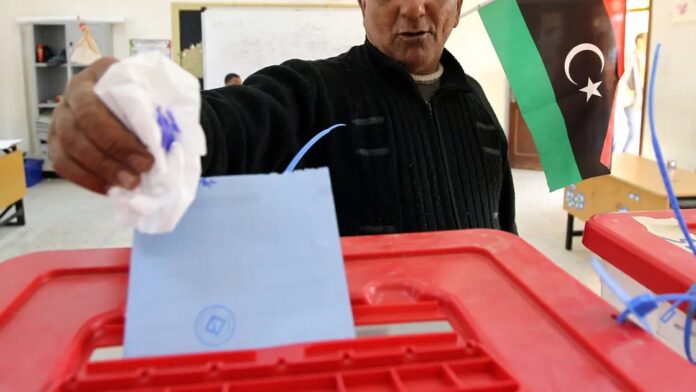Ali Saadi Abdul-Zahra Jubair – Al-Nahrain University – College of Law
Introduction:
Ever since the fall of Moammar Gaddafi, Libya has been marred by a lack of political stability. The country has seen 13 constitutional amendments in its quest to prepare for presidential and parliamentary elections. Consequently, Libya currently grapples with a political divide and multiple legitimacy issues. The nation is governed by two separate administrations, one in the east and the other in the west, resulting in the presence of dual parliaments and armed forces. This has led to an ongoing and unresolved military conflict, compounded by the presence of foreign mercenaries and local militias that operate independently from the recognized government authorities. Regrettably, the Libyan populace has become a victim of these protracted political crises. Despite numerous UN initiatives aimed at resolving the ongoing political violence since 2011, a unified vision among political parties in the East and West regarding the electoral process remains elusive. The primary source of contention often centers around election laws that have yet to be enacted due to the entrenched positions of political factions regarding eligibility and the supervisory government. Furthermore, external interference poses one of the most formidable challenges to holding elections. Foreign powers consistently intervene to safeguard their strategic interests, supporting one faction over another. As a result, the prospects of holding elections by the end of 2023 appear bleak unless local parties can find common ground and prioritize the national interest over their narrow concerns. The longing for these elections by Libyan citizens signifies their hope for an end to violence and destruction. Achieving this goal necessitates a cessation of regional and international interference in Libyan affairs, accompanied by a collective agreement on the election process.
Constitutional Amendments and Governance Complexity:
Under Constitutional Amendment No. 13 of 2023, Libya has established a hybrid system of governance, combining elements from both presidential and parliamentary systems. The legislative body, represented by the National Assembly, comprises two chambers: the House of Representatives and the Senate. This body is responsible for passing laws, and endorsing the state’s general policy, the economic and social development plan, and the state budget, while also exercising control over the executive branch. The House of Representatives is made up of several members elected through universal, free, secret, and direct suffrage, based on population and geographic criteria. Representation is determined at one deputy for every forty thousand citizens or a fraction exceeding half, provided the distance from inhabited areas does not exceed one hundred kilometers. The representation of each region must remain at a minimum of the current number of House of Representatives members, and voters must be at least eighteen years of age, as outlined by law. The term of office for both the House of Representatives and the Senate is four years. The Senate comprises sixty members, elected through free and secret universal suffrage via individual voting, with voters being at least eighteen years old. To implement this provision, seats are distributed among three electoral regions: The western region (Tripoli) with 20 members, the Eastern Region (Cyrenaica) with 20 members, and the Southern region with 20 members. The allocation ensures the representation of cultural and linguistic components, with two members designated for each component while considering the geographical distribution of seats within each electoral district, all by the law.










